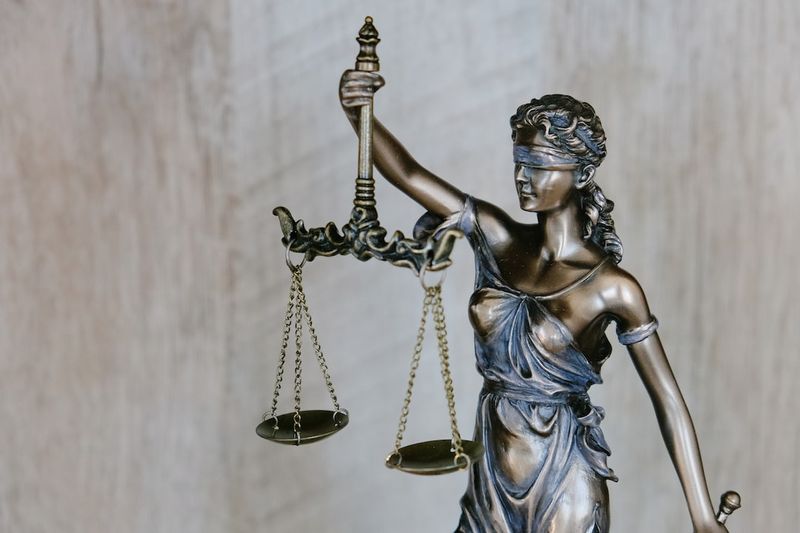The ABC Drops Defence in Heston Russell’s Defamation Case to Protect Sources
By | Published on July 12, 2023
 The ABC has dropped its defence in a defamation case brought by former Australian commando Heston Russell, citing the need to protect its sources. (Photograph: Sam Mooy/Getty Images)
The ABC has dropped its defence in a defamation case brought by former Australian commando Heston Russell, citing the need to protect its sources. (Photograph: Sam Mooy/Getty Images)
The Background
The Australian Broadcasting Corporation (ABC) has made the surprising decision to drop its public interest defence in a defamation case brought against it by former Australian commando Heston Russell. The move comes after a federal court judge ordered the ABC journalists to reveal their confidential sources.
Russell is suing the ABC over several news articles and broadcasts that discussed his alleged actions as the commander of the November platoon in Afghanistan in 2012. In these articles, Russell was linked to war crimes, with allegations suggesting that he left “fire and bodies” in his wake during his service.
In a recent interlocutory hearing, the ABC‘s barrister, Lyndelle Barnett, stated that the corporation was willing to accept the consequences of dropping its defence and paying damages in order to prioritize the protection of its sources. Barnett emphasized the importance of the promises made to sources and acknowledged that the decision was not taken lightly.
The Significance of Source Protection
The ABC‘s decision to drop its defence in favor of protecting its sources raises important questions about the role of press freedom and the ethical obligations of journalists. In modern journalism, protecting sources is crucial for public interest reporting, particularly when sources fear negative repercussions if their identities were to be revealed.
By upholding their commitment to source protection, the ABC and other news organizations play a vital role in maintaining trust and transparency in their reporting. Journalists must be able to guarantee anonymity to sources who provide valuable information, especially when it concerns matters of national interest and potential wrongdoing.
Furthermore, the principle of source protection is not only essential for the function of an open democratic society, but it also ensures that individuals are willing to speak truth to power. Without the reassurance of source protection, potential whistleblowers and informants may be discouraged from coming forward, thereby hindering the public’s access to important information and weakening the media’s role as a watchdog.
While some may argue that the need to protect sources should be balanced against the harm that defamatory claims can cause, it is important to remember that defamation laws already provide avenues for individuals to seek redress without compromising source protection.
The ABC‘s Position
The ABC, through its director of news, Justin Stevens, has reiterated its commitment to honoring the promise of protecting the names of its sources. Stevens highlights the ethical responsibility journalists have in maintaining the trust of those who speak out against powerful entities.
The ABC asserts that while it wanted the opportunity to defend its journalism in court, it ultimately prioritizes the principle of protecting sources. The organization firmly believes that taking the “strongest line possible” in supporting journalists and sources is crucial for public interest journalism in Australia.
Despite dropping its defence, the ABC still maintains its position that its reporting was in the public interest. The legal battle between the ABC and Russell will continue, with arguments regarding the reveal of source identities to be heard by Justice Michael Lee on Friday.
The Implications
The decision by the ABC to drop its defence in Heston Russell’s defamation case has significant implications for both press freedom and the public’s right to know. It emphasizes the ongoing struggle faced by journalists and news organizations in balancing the need for responsible reporting with protecting confidential sources.
While defamation laws exist to address cases of reputational harm, it is essential for the judiciary and lawmakers to consider the potential chilling effect on investigative journalism and the democratic process if stringent source protection is not upheld.
As this legal battle unfolds, it is vital for Australians to recognize that protecting sources is not merely a legal technicality, but a fundamental aspect of ethical journalism. The public should support news organizations like the ABC in their efforts to provide accurate, insightful, and responsible journalism while maintaining the necessary protection of their sources.
Conclusion
The ABC‘s decision to drop its defence in Heston Russell’s defamation case highlights the complex challenges faced by news organizations in protecting sources while navigating legal battles. It underscores the critical role of source protection in upholding press freedom and maintaining a vibrant and accountable democracy.
As Australians, it is imperative that we recognize the significance of journalists’ ethical responsibilities and consider the potential consequences if source protection is undermined. Supporting news organizations’ commitment to responsible and transparent reporting ensures the free flow of information and fosters public trust in the media.
While the outcome of this particular case remains uncertain, it is our collective responsibility to safeguard the principles of press freedom and source protection for the benefit of Australian society as a whole.

<< photo by Tingey Injury Law Firm >>
The image is for illustrative purposes only and does not depict the actual situation.
You might want to read !
- Huw Edwards Accused by Wife: Unveiling the Allegations against the BBC Presenter
- “Remembering an Icon: Australian National Treasure Passes Away at Age 94”
- Farewell to Alan Wilkie, Australia’s Legendary TV Weatherman
- FIA responds to driver concerns and revises Turn 1 barrier in Montreal: A necessary safety measure
- “Magical Match Seals Tenth Consecutive Port Win for Veteran Players”
- Barnaby Joyce: A Bitter Battle Against Defamation




